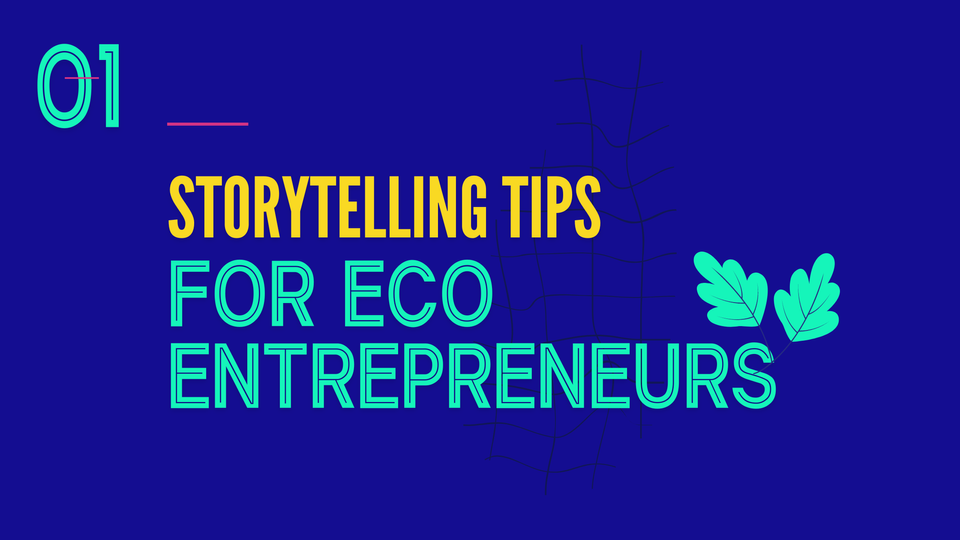Storytelling Tips For Eco Entrepreneurs

Discover the Power of Storytelling for Eco Entrepreneurs
In a world where headlines often focus on the challenges we face – cost of living crisis, inflation, pollution, habitat destruction, and climate change – it's important to shine a light on the positive stories of impact being created by innovative minds in sustainability and climate tech.
Sharing your story can be daunting, especially if you're an introvert or promoting your brand for the first time. But storytelling is a powerful tool that can help you connect with your audience and inspire action.
Over the next 30 days, we’ll be sharing valuable tips and insights on how to effectively tell your story.
Let's start with the most important question: Why?
Starting with Your Why
Connect your personal journey to your sustainability mission.
Reflect on the moment or experience that inspired you to start your path. What was the ‘aha’ moment for you? This could be a personal encounter with an environmental issue or a realisation about the potential of technology to drive change.
Why is storytelling so important?
- Inspire and Engage: Stories have the power to inspire and engage, turning complex issues into relatable narratives.
- Build Trust: Authentic stories build trust and foster connections with your audience.
- Drive Action: Compelling stories motivate people to take action, whether it's adopting sustainable practices or supporting eco-friendly products.
Tips for Effective Storytelling
1. Define the purpose of your story and who you are trying to connect with.
Knowing whether you're speaking to customers, investors, business partners, or potential team members will help you tailor your message effectively.
2. Authenticity is key.
Be honest and open about your motivations and experiences. Authentic stories create deeper connections with your audience.
3. Set the Scene: Start with a strong opener.
Begin your story by clearly establishing the context or setting. This could be the current state of the environmental issue you're addressing or the genesis of your startup.
Example: Instead of saying, "Our company reduced plastic waste by 50%," you could share a story like this: "Last year, I visited a beach that was once pristine but was now littered with plastic waste. Seeing this firsthand was heart-wrenching. It was then I realised the urgent need to make a change. This moment inspired our company to develop a new process that has since reduced our plastic waste by 50%. Watching our efforts transform that same beach back to its natural beauty has been incredibly rewarding and motivates us to keep pushing for even greater impact."
Your story is unique and has the power to inspire others. Share it with authenticity and visual appeal to connect deeply with your audience.
Stay tuned for more storytelling tips as we continue this journey together!


